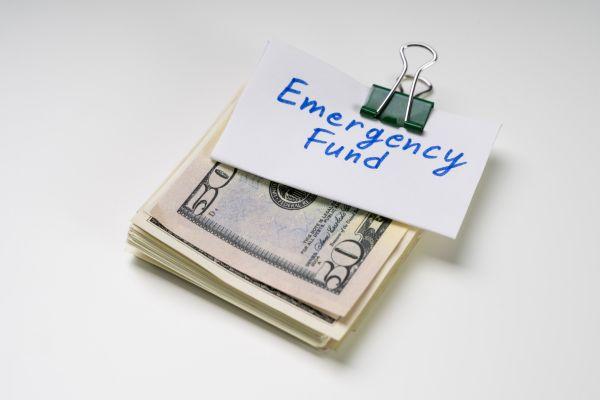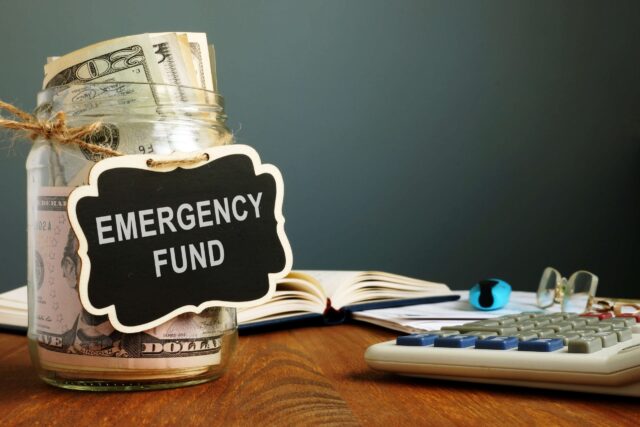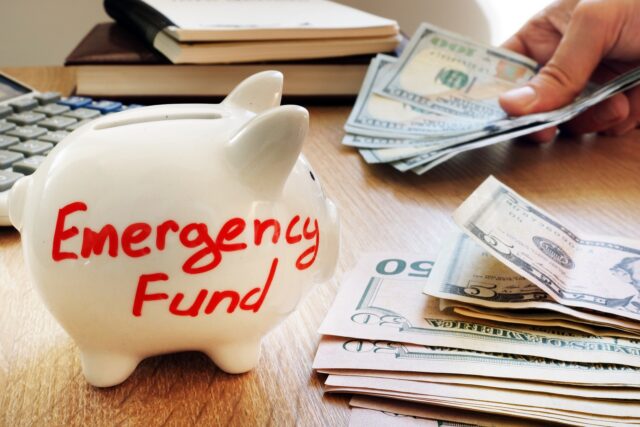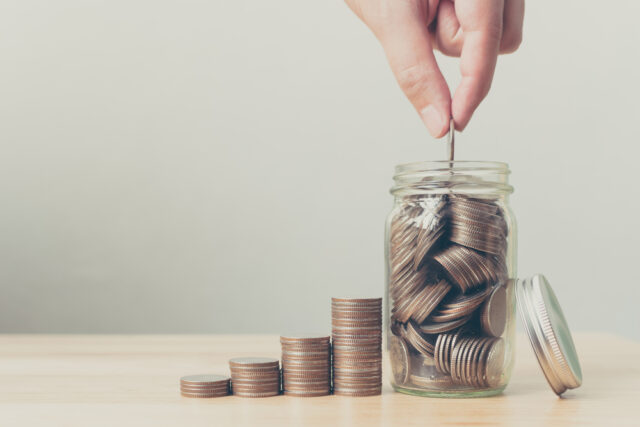
In today’s uncertain world, having an emergency fund is an essential part of financial planning. Life is full of unexpected events, and having a financial safety net can provide a sense of security and peace of mind.
In this article, we will explore the importance of having an emergency fund and discuss how it can help individuals navigate through unexpected financial challenges.
What is an Emergency Fund?

An emergency fund is a dedicated pool of money set aside to cover unforeseen expenses or emergencies. It acts as a financial safety net, providing a buffer against unexpected events such as medical emergencies, job loss, car repairs, or home repairs.
Unlike regular savings, which are typically earmarked for specific goals, an emergency fund is designed to address immediate and urgent financial needs.
The Importance of Having an Emergency Fund

1. Financial Security and Peace of Mind
Having an emergency fund provides financial security and peace of mind. Knowing that you have a cushion of money to fall back on in times of crisis can alleviate stress and anxiety. It allows you to face unexpected situations with confidence, knowing that you have the means to handle them without disrupting your overall financial stability.
2. Protection Against Unexpected Expenses
Life is unpredictable, and unexpected expenses can arise at any moment. Whether it’s a major car repair or a sudden medical bill, having an emergency fund can help you handle these expenses without resorting to high-interest credit cards or loans. It allows you to maintain your financial equilibrium and avoid accumulating unnecessary debt.
But before applying do check if you have a stable job with a regular income so that you can afford the repayments.
3. Cushioning Against Income Loss
Losing a job or experiencing a significant reduction in income can be a daunting experience. An emergency fund can provide a safety net during such periods of income loss, ensuring that you can cover your essential expenses while seeking new employment or exploring other income-generating opportunities. It gives you time to regroup and make informed decisions without feeling pressured to accept unfavourable financial circumstances.
4. Building Long-Term Financial Stability
An emergency fund is not just a short-term solution; it plays a crucial role in building long-term financial stability. By having a safety net, you can focus on other financial goals, such as saving for retirement, purchasing a home, or funding your children’s education. It provides a solid foundation upon which you can build a secure financial future.
How to Start an Emergency Fund?

1. Setting Realistic Savings Goals
The first step in starting an emergency fund is setting realistic savings goals. Determine how much you want to save and establish a target amount that will provide an adequate safety net. Consider factors such as your monthly expenses, income stability, and potential emergencies you may face. Aim to save at least three to six months’ worth of living expenses, but adjust the target based on your individual circumstances.
2. Repay All Your Debts First
Before you start saving for an emergency fund, it is essential to prioritize debt repayment. Begin by focusing on clearing outstanding loans such as emergency loans, short term loans, etc, which you might have taken from any reputed direct lender like Lending Stream.
By eliminating debt, you can allocate more money towards building a robust emergency fund. Prioritizing debt repayment ensures financial stability and minimizes the risk of falling into further debt during unforeseen circumstances.
3. Automating Your Savings
Make saving for emergencies a priority by automating your savings. Set up a direct deposit or recurring transfer from your paycheck into a separate savings account dedicated solely to your emergency fund. By automating the process, you ensure that a portion of your income is consistently allocated towards building your financial safety net.
4. Where to Keep Your Emergency Fund
Choose a suitable account to hold your emergency fund. Look for a high-yield savings account or a money market account that offers competitive interest rates while keeping your money accessible. Avoid investing your emergency fund in volatile assets or tying it up in long-term investments, as you may need quick access to the funds during unforeseen circumstances.
5. Growing Your Emergency Fund
Once you’ve established your emergency fund, focus on growing it over time. Look for opportunities to increase your savings rate, such as cutting unnecessary expenses or finding ways to boost your income. Allocate windfalls, tax refunds, or bonuses towards your emergency fund to accelerate its growth. Regularly reassess your savings goals and adjust them as your financial situation evolves.
5. Replenishing Your Emergency Fund
It’s essential to replenish your emergency fund after you’ve used it. Treat it as a priority and make it a habit to restore the withdrawn amount as soon as possible. By doing so, you ensure that your emergency fund remains intact and ready to handle any future unexpected expenses.
Conclusion

Having an emergency fund is crucial for financial stability and peace of mind. It provides a safety net to navigate through unexpected events, protecting you from falling into debt or facing financial stress. By setting realistic savings goals, automating your savings, and making wise decisions about where to keep and grow your emergency fund, you can build a solid foundation for long-term financial security. Start today and take control of your financial future.
FAQs (Frequently Asked Questions)
How much should I save in my emergency fund?
The general recommendation is to save three to six months’ worth of living expenses. However, your individual circumstances may vary, so consider factors such as income stability, monthly expenses, and potential emergencies you may face.
Can I use my emergency fund for non-emergency expenses?
It’s best to reserve your emergency fund strictly for genuine emergencies. Using it for non-emergency expenses may deplete the fund and leave you vulnerable when an actual crisis arises.
What if I don’t have enough money to start an emergency fund?
Start small and gradually build your emergency fund. Even saving a small amount regularly can make a difference over time. Look for opportunities to cut expenses and increase your savings rate.
Should I invest my emergency fund?
It’s generally recommended to keep your emergency fund in a secure and easily accessible account, such as a high-yield savings account or a money market account. Investing it in volatile assets or long-term investments can jeopardize its accessibility during emergencies.
How often should I review and adjust my emergency fund?
Regularly review your financial situation and reassess your savings goals. Major life changes, such as a new job, a pay raise, or a significant expense, may require adjustments to your emergency fund target.









